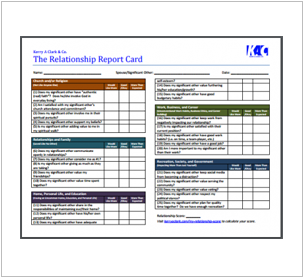Setting the Points to Successful Goals
Outline Each Individual Goal – Part 2
Every project Pamela and I work on we do with one major objective. That objective as you know is to take others to the next level. In order to be effective in this effort it requires us to know two major details. Let me illustrate using this example. We decided to facilitate a virtual group on how to take studying the Bible to the next level. Obviously, we were looking for ways and making a promise to those who attended these virtual sessions that we would transform the way they saw Bible study. How does one do this with intentionality so that the goal is accomplished? Well, the answer is quite simple and can be applied to every goal you desire to achieve. The short answer is this. Start with the end in mind. Let’s break it down into two pieces.

For these two actions to work, we must reverse their logical order.
- Define the end.
I call this “your desired state” or your destination point. While the answer as I mentioned is simple, it takes more effort to actually do this step. Define the end results you envision. For my example, what would it look like for a person to go to the next level in his or her study of the Bible? Here’s a statement I crafted as the desired state. “I want to make you have a better desire to read and begin to have a love for your Bible. I want you after experiencing this content to not only understand what the Bible is all about but enjoy your time reading and studying its words. I want you to pick it up more often and be your go-to for the rest of your life.”
That statement was our expression of what we intended the outcome of the group to be. You must get good and specific about the outcomes you wish to produce by the stated goal. The reason for the goal is to get to this destination. If you are unable to define the desired state or endpoint, then you will never satisfy the goal you have. Start with the end in mind. - Define your starting point. (Optional)
Defining your starting point isn’t as important as defining the desired state. However, it is quite helpful. Using the example of our virtual session on taking one’s study of the Bible to the next level, what Pamela and I did in order to obtain the starting point was ask questions of the group. Not only did we ask questions of the group but asked questions of ourselves. We asked, what is Bible study? Sometimes, a simple redefining of what something is will give clues to what it can be.
The goal of this questioning is to find out where we are. We need to know what we have to work with or what we don’t have to work with. Define your starting point. When I studied the story of Nehemiah who had the assignment or goal (have you) to rebuild the walls of Jerusalem, he had to first go out and inspect the walls. [1] He had to define the starting point. He needed to know what he had to work with and what condition this wall was in. You too will need to determine your starting point for any of the goals you desire to achieve.
At the end of our virtual sessions on the next level Bible study, we exceeded the expectations of those who participated. This all happened because we inspected the group and found their starting points and helped them go beyond their start. Therefore, each person was able to experience next level results. We started first by defining what we wanted our goal’s results to look like. We started with the end in mind. Next, we defined the starting point. We asked questions and inspected where the group was and we began building the wall, executing our goals. Coming up next week, we will speak more about executing on one’s goals. Until then, you know what to do. Let’s do it together. Begin taking your next set of goals to the next level by defining these two points: the end and the starting point.
Question: Thinking of the goal in which you are most passionate, what would it look like to have achieved it?
[1] Nehemiah 2:11-15 NLT, Bible.com, accessed February 6, 2024, https://www.bible.com/bible/116/NEH.2.11-15.NLT
All Scripture references used by permission, see our Scripture copyrights.
 is available now!
Our team has worked very hard putting it together. We designed it to help you and your family move the needle forward in making your life your business.
Find out more about the Family plan here.
is available now!
Our team has worked very hard putting it together. We designed it to help you and your family move the needle forward in making your life your business.
Find out more about the Family plan here.

